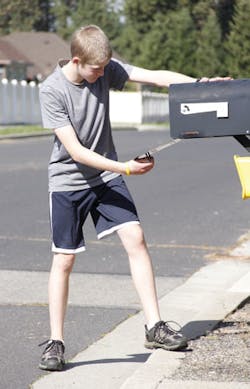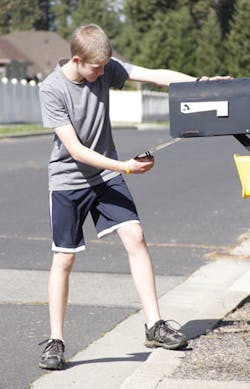Tough love for snuff love? Hygienist mails teenagers information about dangers of snuff
BY EILEEN MORRISSEY, RDH, MS
At a continuing education seminar I recently presented, I encountered a hygienist who goes the extra mile in terms of follow-up with her patients. The subtopic for discussion at the seminar was teenagers who use snuff.
When Patrice Hinkley Nicola, RDH, becomes suspicious that a teen is using snuff, she questions the teen further to determine what the risky behavior is, as well as any other relevant details. She keeps her chairside discussion to nonjudgmental educational counseling, including the potential clinical ramifications and possible outcomes if the risky behavior continues. To that end, she has an 8X10 reprint in her operatory of a snuff user who died at age 27. It shows graphically the lesion that ate through his chin and lower lip. She points it out to any users with an explanation of what this person went through before he died.
The focus for this column is limited to teens that chew but who are not yet exhibiting clinical signs.
It is Patrice's post chairside follow through that caught my attention. Note: Some of these teens are high school age. If no clinical manifestation is evident, Patrice considers the chairside discussion to be confidential and does not speak to a parent if the teen conveys he is unaware. What Patrice does after the appointment, however, is interesting and invites controversy, as I soon discovered. She puts a packet of information together from the Internet that includes some horrific color photos of oral cancer surgery. She includes firsthand accounts of people who have had life altering and disfiguring oral cancers removed. The packet is four to five pages long and includes a handwritten note that explains why the teen should quit as soon as possible. Patrice addresses the envelope "To the Teenager" and mails it to the home residence.
--------------------------------------------
Other articles by Morrissey
- We are our word: Stay in the moment for each dental patient
- Show gratitude to patients: Learn to respect the unmotivated dental patient
- I Only Want to Be with You! Guiding the patient who wants to return home from the periodontist
--------------------------------------------
Her goal is twofold-to re-educate and have the teenager again be made fully aware of the potential worst possible outcome, and to hope that a parent will see the packet from the office and open a dialogue with the teen. Mind you, the parent might see only the addressed envelope, or the contents, depending on a multitude of factors.
I discussed this scenario with my RDH teaching colleagues at Burlington County College, and they had mixed reactions. One teacher who is a parent of a teenager felt that this method was betraying a confidence. If a packet came from the family dental office addressed to her teen, she would open it. (My gut reaction there is that confidence is violated when someone else opens mail addressed to me.) I would not open my teenager's mail. I would, however, ask the teen of the nature of the mailing and proceed from there.
Patrice does not know how her mailings will be received. Will they be opened and the contents viewed? Will the teen or the parent view them? It matters not. Patrice is happy to raise awareness about potential outcomes to risky behaviors.
The discussion amongst the BCC teachers was heated and included a staff dentist. (It should be noted that Patrice's employer is aware of her follow through, and is completely supportive.) The BCC dentist applauded the idea. Everyone present concurred that if there are clinical signs and the teenager is a minor, the parent of the teen needs to be informed or face liability. This is precisely the protocol that takes place in Patrice's office. However, it seems appropriate for general counsel to happen without notifying a parent if the teen admits to chewing but states his parents do not know. After all, as hygienists it is part of our role to educate. Not all agree. Suffice it to say that each RDH must decide whether or not to "rat out" a teen who has confided in them.
I wonder if Patrice's follow-up is the way to reach a teenager? Part of me says yes. Another part of me remembers my attitude back in the day. It smacked of "I'm invincible." Bad outcomes from risky behaviors were things that happened to others, not me!
We practice our profession in the manners we think are best. It's not for me to pass judgment, nor is this the intent of this column. Instead, today is to recognize the actions of a hygienist who I consider to be in the 5-star league. Patrice Hinkley Nicola, RDH, cares enough to take her concern one step further and address it in a way that could make a difference. For that, I commend her!
Onward we go; it is in our hearts' core!RDH
EILEEN MORRISSEY, RDH, MS, is a practicing clinician, speaker, and writer. She is an adjunct dental hygiene faculty member at Burlington County College. Eileen offers CE forums to doctors, hygienists, and their teams. Reach her at [email protected] or 609-259-8008. Visit her website at www.eileenmorrissey.com.

